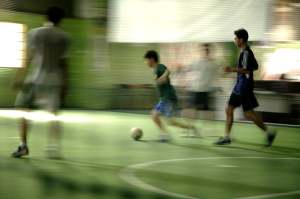Concussion + Migraine = “Neurocognitive Decline”?
People – especially children – with migraine after concussion – could be in danger. They could be at higher risk of permanent difficulty thinking, reasoning, and remembering.
Neurocognitive impairment relates to the ability to think and reason – including issues with memory, learning and speaking. In a study out of the University of Pittsburgh, patients who had concussion and then post-traumatic migraine also had increased risk of neurocognitive impairment, as opposed to patients with no headache, or non-migraine headache. Here’s what the study’s lead author, Jason Mihalik, said about the results:
 |
The findings of our study strongly support the need for clinicians to exercise increased vigilance in making decisions about managing a concussed athlete with PTM and extreme caution as to when that athlete should be allowed to return to play…
…This is a particularly important focus of study because symptoms of post-traumatic migraine are a complication of sports-related concussion that is often misunderstood. A specific diagnosis is often not assigned and an optimal course of therapy is often not provided.
In other words, it’s important to nail down what type of headache and what kind of symptoms the patient has. It’s not enough to just say,"Oh, you’re probably just getting a few headaches because of the concussion."
In this particular study, which we’ve mentioned before, patients with post-traumatic migraine were more likely to have poorer verbal and visual memory, motor speed and reaction time.
Get as much specific information you can about symptoms in any post-traumatic situation. They may be telling you more about your state of recovery than many doctors realize.

7 June 2011 @ 12:47 am
As a psychologist and migraineur, I found this article very interesting.